Liberating Our Stories
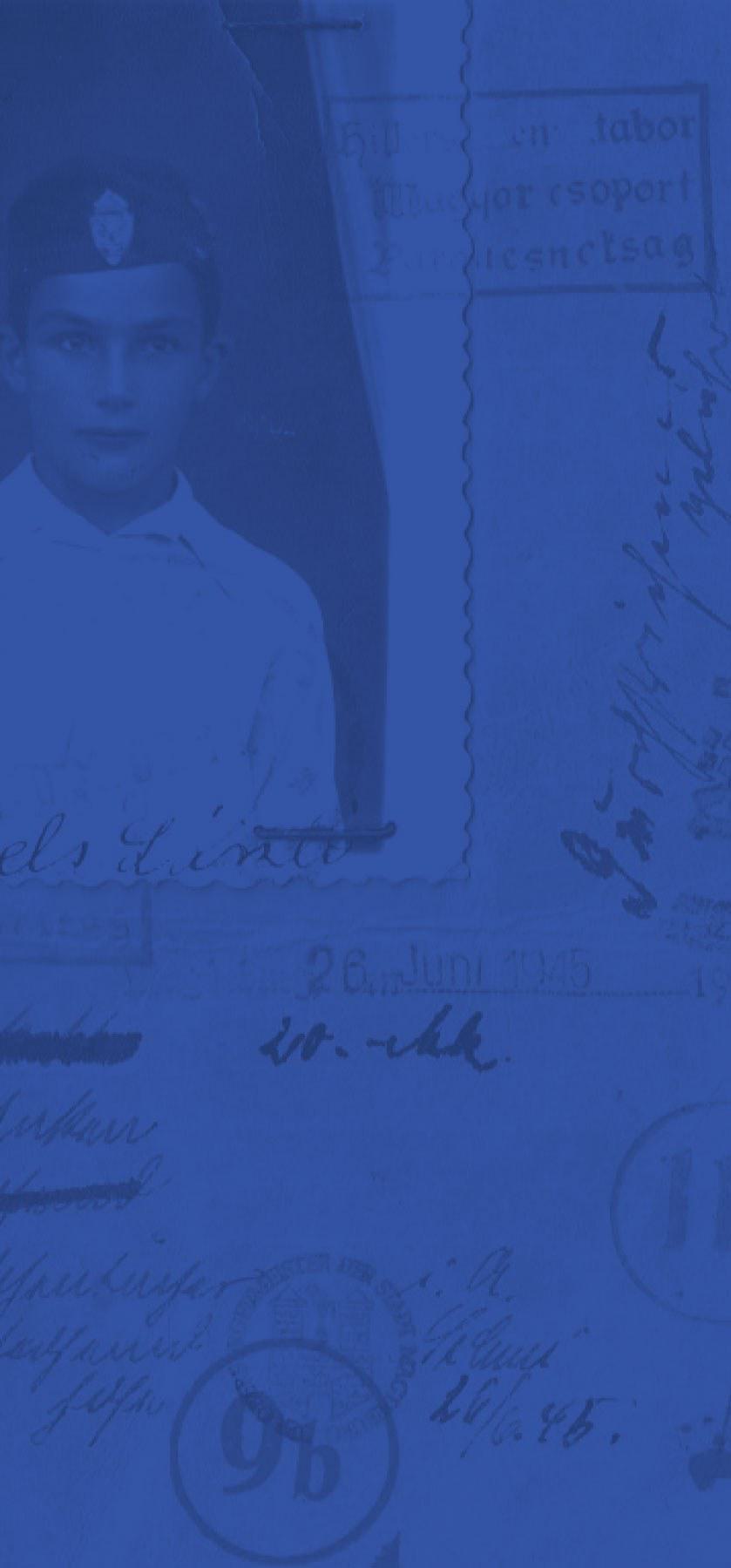
Leslie Meisels
Born
1927, Nádudvar, Hungary
Survived the War
In the In the Nádudvar and Debrecen ghettos, forced labour in Austria and Bergen-Belsen
Liberation Date
April 13, 1945, Farsleben, Germany
Liberators
US Army
In April 1945, Leslie Meisels and his family were forced onto a train in the German concentration camp of Bergen-Belsen. They were bound for the Theresienstadt camp and ghetto in Czechoslovakia, but the train came to a stop well before they reached their destination. At first, it seemed like the SS guards would shoot them all. But by the next morning, all of the guards had disappeared. Were Leslie and his family free?
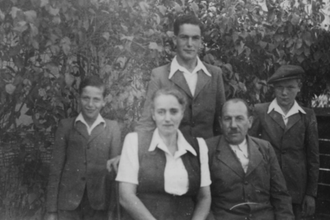
The Meisels family in their backyard soon after reuniting. Leslie is standing at the back. Left to right (in front): his brother Frank; his mother, Etelka and father, Lajos; and his brother George. Nádudvar, Hungary, 1945.
Suddenly a huge cry went up. When I looked over to the top of that little embankment, I saw some dirty, sweating American soldiers — the most beautiful human beings imaginable — appear with their guns ready. Instead of the enemy, they found us and heard our screams and our cries of “Oh God, we are free! We are going to be human beings again!”
We were liberated near the village of Farsleben, about twenty kilometres north of Magdeburg, on Friday, April 13, 1945, at around 1:00 p.m. (and therefore, ever since then, I call Friday the thirteenth my very, very lucky day). I remember […] telling my mother and brothers that we were free, crying at the same time. That feeling was not, and still is not, possible to express in words. After more than sixty years, whenever I think about that moment, my skin still shivers. Those soldiers from the Ninth United States Army not only liberated us, they gave us back our lives.
Oh God, we are free! We are going to be human beings again!
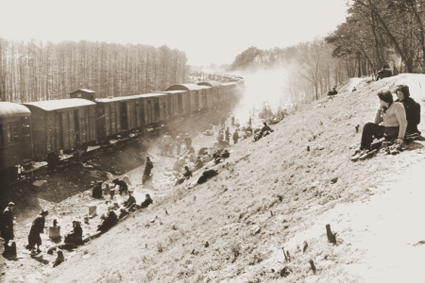
Survivors rest on an embankment near Farsleben next to the stopped train that came from Bergen-Belsen. Germany, April 14, 1945. Credit: United States Holocaust Memorial Museum, courtesy of National Archives and Records Administration, College Park.
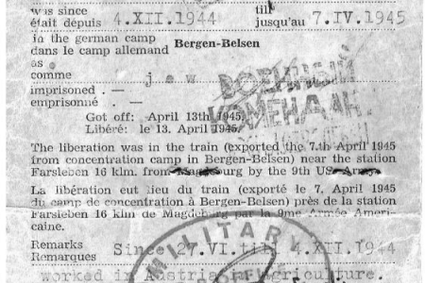
The identity papers issued to Leslie by the American army after his liberation. Hillersleben, Germany, June 1945.
Many decades after Leslie was liberated, he attended a 2009 reunion between the survivors of the train at Farsleben — which had become known as the “Death Train” — and the American troops who had liberated them. Leslie spoke at the reunion and was finally able to thank his liberators for saving his life.
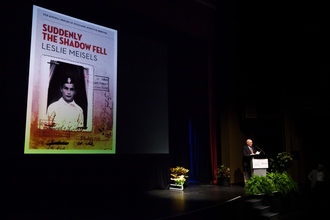
Leslie sharing his story at the launch of his memoir, Suddenly the Shadow Fell. Toronto, 2014.
Almost sixty-five years later, I met the men who gave me back my life! It was a miracle that I had never dreamed could happen. I spoke at one of the six different sessions at the symposium, which was attended by about four hundred students from the surrounding area, and I also spoke with the liberating veterans, whom I call “the angels of my life.”
I met the men who gave me back my life!
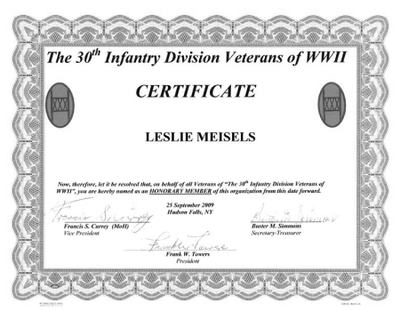
Leslie's honorary membership in the 30th Infantry Division Veterans of World War II, awarded after he was reunited with his liberators. Hudson Falls, NY, 2009.
Educating students about the Holocaust is extremely important to me.
…quite a number of students send letters in which they tell me that I made an indelible impression on them and that they will try to be better people after hearing my experiences. Many times, I am also asked why I relive the horrors in my mind. I tell them that through their letters, I can see that many of them are looking at things differently than they did before. They understand, through my experiences, what prejudice, discrimination, hatred and injustice can lead to, and hopefully they — one person, one day at a time — will fight against it.

